“I’d like to grow the membership and make more powerful”
HONOLULU—Oahu Division rank-and-file members and Business Agents participated in an organizing training class on December 13, 2010, in order to learn how the ILWU organizes new members, as well as why organizing is so important to the ILWU.
“The ILWU has a very strong organizing program compared to other Hawaii unions,” said ILWU International Representative Tracy Takano, who was the lead instructor for the day-long training session.
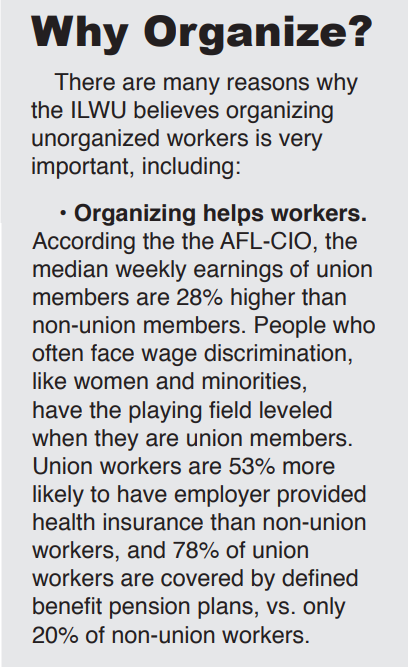
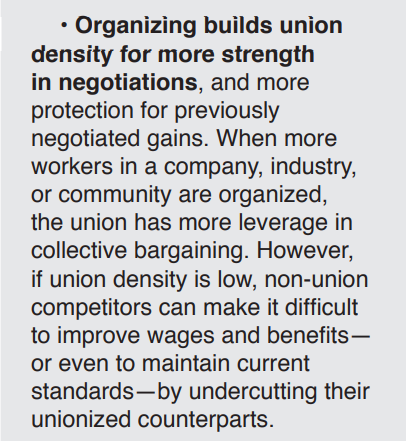
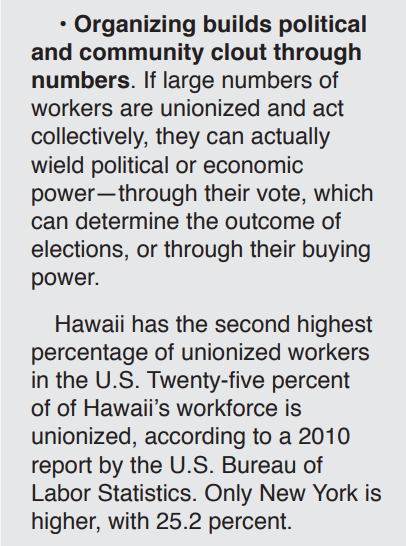
Oahu Division Organizer Carmelita Labtingao, Rick DeCosta, who worked at Unit 4406 - The Honolulu Advertiser, and staff person Eadie Omonaka assisted Takano.
Members from several different Oahu units, including Love’s Bakery, Dole Food Company, and Ohana Honolulu Airport Hotel participated in the training. “I want to learn more about organizing,” said Brandon Ogawa from Unit 4405 - Foodland Super Market Ltd., “I really believe in the union, and I’m looking forward to helping people.” Unit 4405 - Hawaii Logistics 2nd Vice Chair Jose Miramontes, who already has experience organizing at his own workplace, told other participants that he’d “like grow the ILWU membership in Oahu Division and make it more powerful.”
Workers want to join a union
Oahu Division Director Dave Mori opened the class, telling everyone that he was active in organzing as a rank-and-filer working for Oahu Sugar Company. He encouraged the members to participate in the organizing program, reminding them that Oahu Division has the biggest opportunity for organizing because it has the largest population of workers in the state. “There are many workers who want to join a union, but there are so many obstacles for them, like fear. That’s why we have to speak to them from the heart, and really listen to what they have to say,” said Mori.
Mori also informed participants about a state law enacted in 2009 that makes it easier for agriculture workers covered by the Hawaii Labor Relations Act (HLRB) to organize and get a first contract. The Hawaii law is very similar to the Employee Free Choice Act, the most recent version of which was introduced in the U.S. Congress in 2009, but has since failed to move forward.
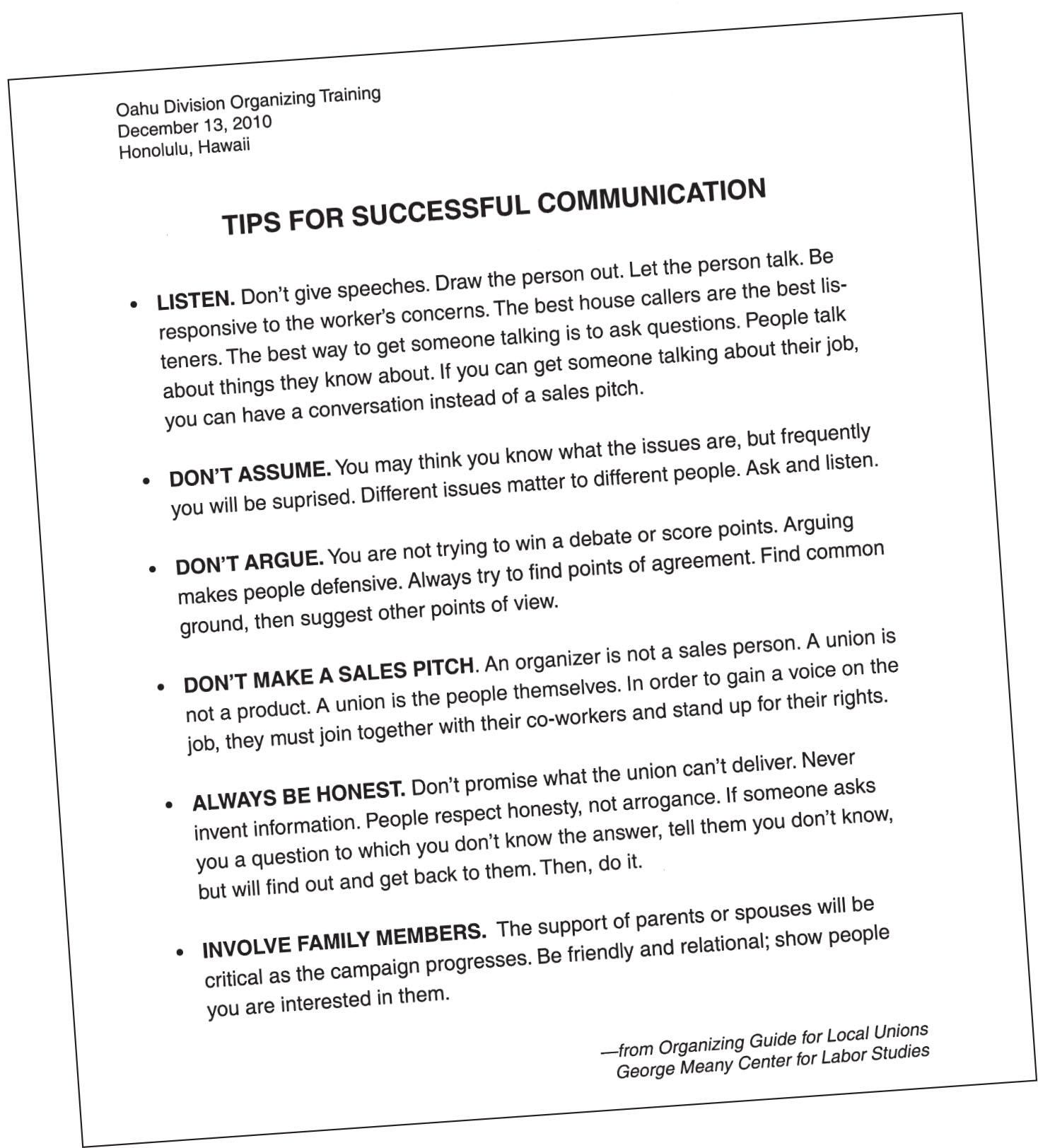
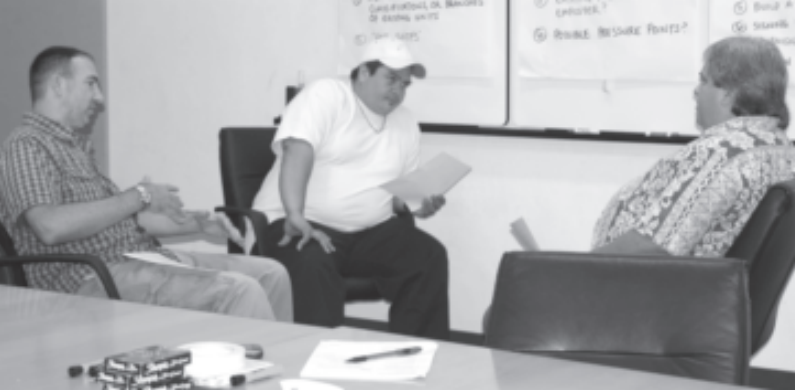
Shane Donnelly of Unit 4406 - Honolulu Star Advertiser and Jose Miramontes of Unit 4405 - Hawaii Logistics practice a house call as organizers with Rick DeCosta, who plays the role of a hotel worker. Donnelly and Miramontes focus on listening carefully to what DeCosta has to say.
Why and how to organize
The training covered many topics, including why the ILWU organizes (see sidebar), what the ILWU’s organizing focus is, and how the union evaluates organizing targets.
Members also did a step-by-step review of the phases of a typical organizing campaign—from getting organizing leads and making first contact with targeted workers, to the actual election and what happens afterward. Labtingao described what it was like for her when she voted to join a union. “It can be scary, actually, especially if you are a union supporter,” said Labtingao. “There are only three people there, the [National Labor Relations Board] agent, the company representative and someone from the worker’s side, but you look around to see if anyone is watching you. You are scared because you think someone from the company will know how you voted. I checked my ballot to make sure my name wasn’t written on it someplace, so nobody would know how I voted.”
In the afternoon session, members learned about the “house call”—an indispensable organizing tool. When organizers visit someone at his or her home to find out about workplace issues and build involvement in the union, that visit is a “house call.” The house call is important because employees may be afraid to talk about the union at work.
Class participants learned about typical topics and goals for house calls and got tips on effective communication. They practiced answering questions that are often asked during house calls, like “what can the union do for me?” or “can I get fired for signing a union card?” and did a role-playing exercise to practice house calling.
Building a pool of organizers
At the end of the training session, Takano encouraged participants to consider getting involved in the ILWU’s organizing program and to look for potential organizers among their fellow workers. “The ILWU continues to build a “pool” of trained rank-and-file organizers,” said Takano. “We believe union members make the best organizers, because nobody knows better than you the value of belonging to a union.”
If any member of the ILWU is interested in organizing, or organizing training, they should contact their Division office for more information.
